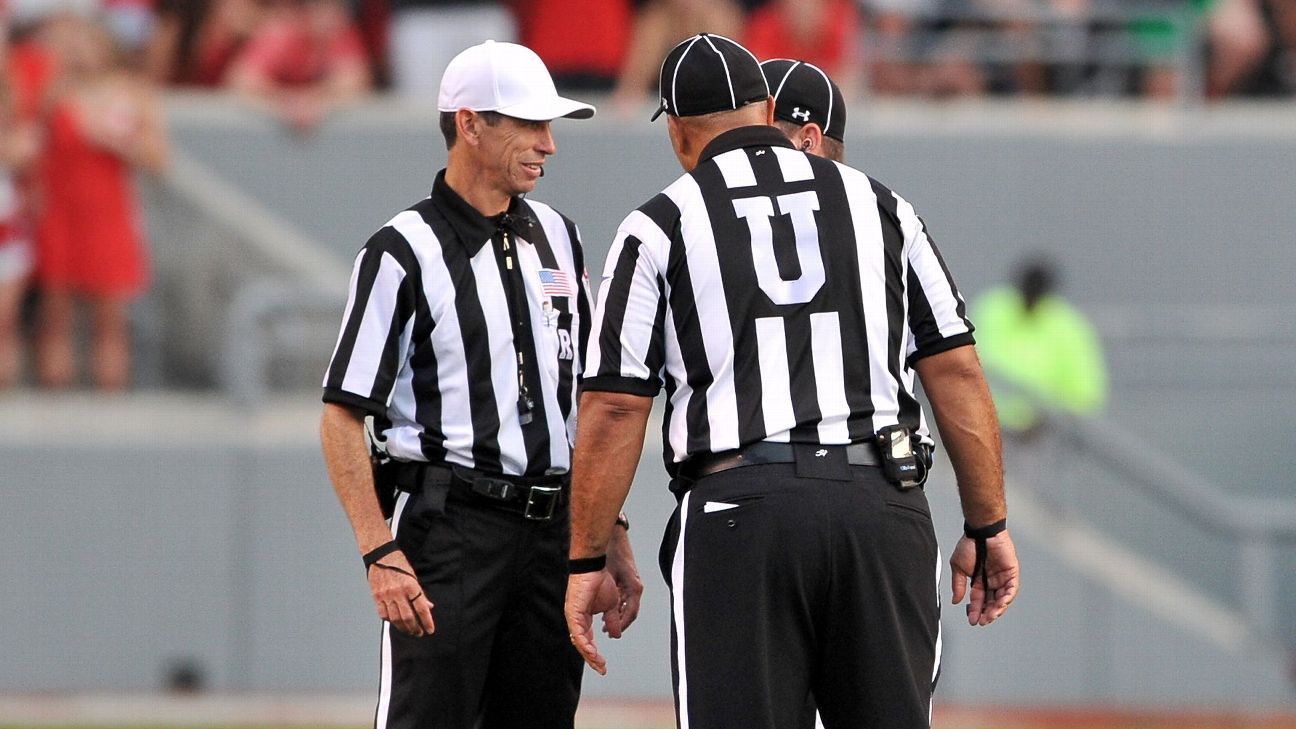The NCAA Football Rules Committee announced a few small rule-change proposals for the 2019 season on Friday, aimed mostly at improving player safety.
If one of the proposals is adopted, which is expected, players who commit a second targeting penalty in a season will be forced to miss the rest of that game and their team’s entire next game. Under the current rules, players who commit targeting are ejected from that game and are required to miss the first half of the following game if the penalty occurred in the second half (there is no further suspension when the penalty occurs in the first half).
In concert with this, referees will also be required to review replays of all targeting calls to confirm all elements of targeting were present. If the targeting penalty is unable to be confirmed by video review, the call on the field cannot stand.
“The targeting rule has been effective in changing player behavior,” Steve Shaw, NCAA secretary-rules editor, said in a statement. “The progressive penalty is to ensure that a player re-evaluates his technique, with coaching staff support, after he receives a targeting foul. Additionally, the instant replay review changes will ensure that when a player is disqualified, it is clearly warranted.”
There was lengthy discussion by the committee about how to address targeting, including the possibility of a two-tiered system — similar to how facemask penalties used to be structured — where a more violent targeting offense would be penalized more harshly. Instead, the committee opted for the additional ejection and more stringent replay confirmation standards.
“I don’t see it as a compromise so much as I see it as another way to reach the same goal,” said Stanford coach David Shaw, the chair of the committee. “We want the discipline to be severe for helmet-to-helmet contact, but we also want it to be right. That was kind of the idea of the two-tiered system, which was, ‘OK, if it’s a violent hit, but it’s not helmet-to-helmet, it’s not technically targeting, then we will take off the ejection.’
“Now what we’re saying with this rule, we’re going to make sure of the ejection to make sure it’s right. The goal is the same.”
Among the additional proposals is a tweak to overtime rules. Once a game reaches a fifth overtime period, the teams no longer trade off starting at the opponent’s 25-yard line. Instead, teams will run alternating two-point conversions until a winner is determined. This potential change comes in the wake of last year’s Texas A&M–LSU game, which lasted seven overtimes and called into question player safety.
There have been just five FBS games over the last five seasons that have reached five overtimes.
The committee also proposed the elimination of the two-man wedge blocking formation during kickoff returns and forcible contact on blind-side blocks. A blind-side block with forcible contact would result in a 15-yard personal foul.
The NCAA Playing Rules Oversight Panel will review the proposals for approval on April 17.
